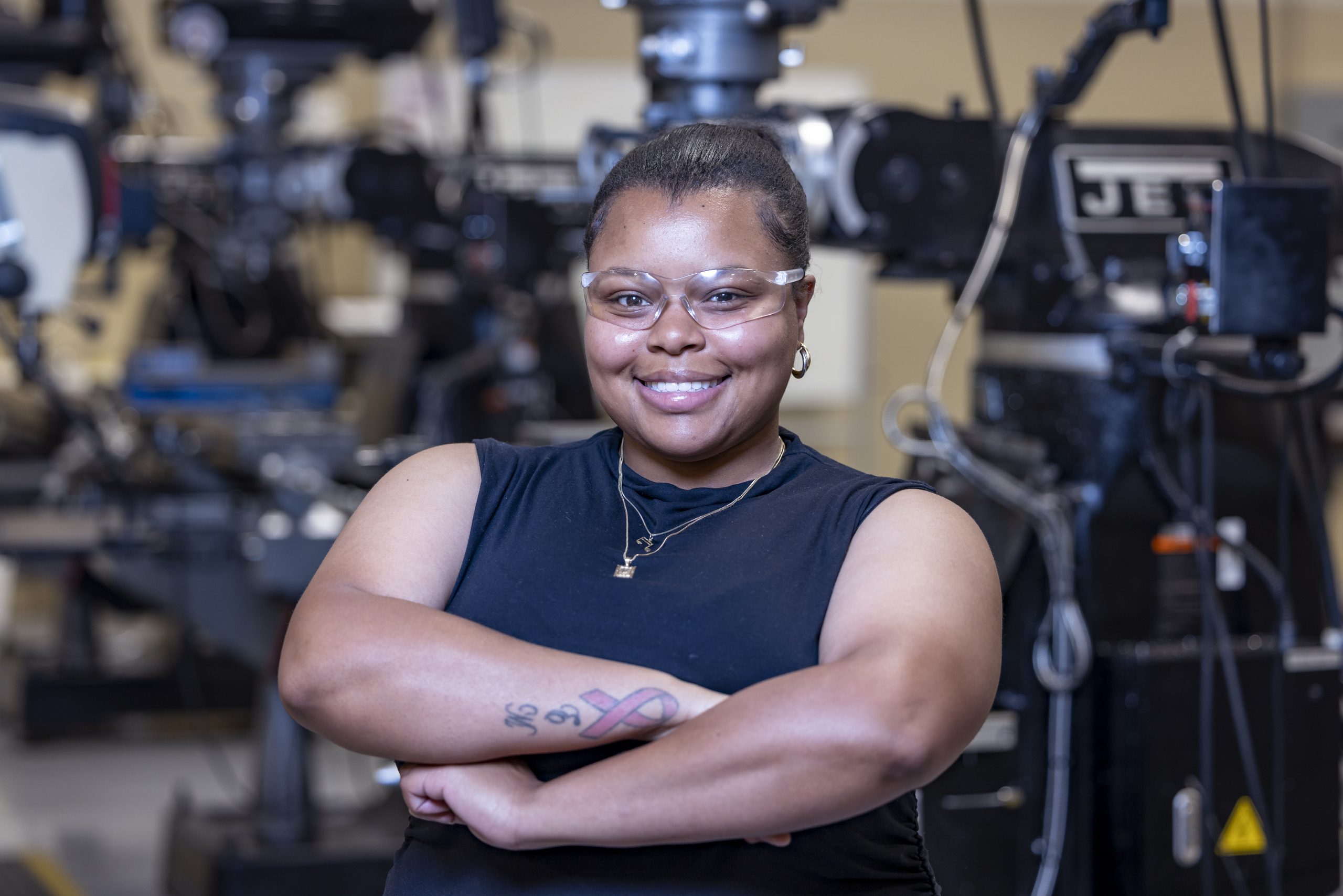Learning That Happens in the Real World
Are you a student eager to gain hands-on experience in your field while also earning academic credit? Is your business interested in investing in its future employees? Are you looking for a solution to labor shortages? Look no further than South Piedmont’s Work-Based Learning program.
Work-Based Learning in Action
South Piedmont Community College’s Work-Based Learning program makes a difference for students — and they’re eager to tell their stories. Hear from students and faculty about the impact of this program.
I have learned a ton in my work-based learning experiences. The classes I have taken so far and the textbooks I have read all talk about human services as it exists in a perfect world. In real life, there are often limited or very limited resources, and nothing seems to go exactly as planned. It has been extremely helpful to see the way that different facilities and employees handle these challenges.
Portia Gonzalez, ’24 Human Services Technology graduate
Work-Based Learning for Students
From real-world experience to an expanded professional network, there are many reasons for students to participate in Work-Based Learning.
Firsthand Experience
You’ll participate in real-life practical tasks that mirror what professionals do every day.
Skill Building
You’ll hone vital skills such as critical thinking, professional communication, teamwork, and time management, making you a more well-rounded job candidate.
Career Discovery
You’ll explore various career paths to find the one that truly excites you, helping you make better informed decisions about your professional future.
Network Expansion
You’ll connect with industry professionals, positioning you for future opportunities and potentially even a new job!
Personal Development
You’ll build confidence, develop a strong work ethic, and enhance your interpersonal skills.
Potential for $$$
Some work-based learning experiences are paid.
Work-Based Learning for Employers
Work-Based Learning allows employers to shape the future of our workforce – and so much more.
Access to Talent
Employers can identify and recruit talented individuals early, reducing the time and costs associated with traditional hiring processes.
Mentorship
Employees who participate in mentorship programs often feel a sense of pride and accomplishment, knowing they are contributing to the development of the next generation.
Tailored Training and Skill Development
Employers train and develop the students’ skills to meet their specific needs. This ensures that WBL students acquire the competencies most relevant to the business, leading to a more efficient and effective workforce.
Isaiah has been an absolute asset and has far exceeded our expectations when working with an intern. He is very eager to learn and wants to dive head-first into tasks.
Chris Mumpower, Help Desk Supervisor Union County Government
Work-Based Learning FAQ
Work-based learning is an educational approach that combines classroom instruction with practical work experience. It allows students to apply academic knowledge in real-world settings, helping them to gain hands-on skills and valuable industry insights.
Work-based learning is typically short-term and focuses on providing exposure to a specific field. Students may be paid or unpaid, and while WBL does not lead to certification, students gain academic credit towards graduation and their experiences may lead to part- or full-time employment. Apprenticeships are usually long-term and combine hands-on training with classroom instruction. They are usually paid positions and often result in a certification or credential in a specific trade or profession.
Yes and no. Although it is not a requirement for WBL students to be paid, some do receive compensation. It depends on the employer. At South Piedmont Community College, we have employer partners that offer both paid and unpaid work experiences.
Access to talent, skills development, practical experience, cost-effective workforce development, professional networking, and so much more!
At South Piedmont Community College, we have employer partners that represent every academic program at our school.
At South Piedmont Community College, we are invested in your success. We are with you throughout the entire process, from the start, during, and after. Providing counseling, guidance, and mentorship. You’ll receive a personalized experience that is sure to prepare you for what comes after college.
- You must have a current GPA of 2.0+ .
- For both curriculum and non-credit students, work-based learning must be written into your academic program.
- Non-credit students must be registered in a program of 96 hours or more.
- You must be able to remotely or physically work at an off-site location for 160 hours during the course of one semester.
Ready to start your work-based learning experience? Here’s what to do next.
- Meet with your academic advisor to determine your eligibility.
- Contact the Work-Based Learning coordinator to apply.
- The WBL coordinator will find a compatible local employer site.
- Prepare to be interviewed.
- Enroll in the required courses.
- Start your hands-on work experience.
Participating employers agree to be a WBL “work site.” This means that you’ll have students working either remotely or physically, learning about your business and industry and gaining real-world skills. You’ll get the chance to train prospective employees, and you’ll be top of mind when our graduates enter the workforce. WBL is a great option for employers looking for answers to their long-term labor needs.


